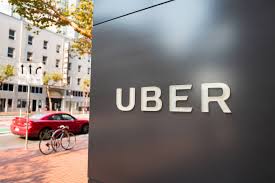Saudi Arabia’s Wealth Fund Is Underwater On Uber’s IPO

Buy low and sell high, traditional investing wisdom dictates.
So far, that lesson hasn’t worked out for one major Uber investor: Saudi Arabia’s sovereign wealth fund. That fund, under a new directive to diversify the company’s financials outside of oil, bought its shares of the ride-sharing giant when they were priced at $ 48.77 apiece—above Uber’s IPO price of $ 45, per Securities and Exchange filings.
Ahead of its first day of trading Friday, Uber announced that it had raised about $ 8.1 billion in an IPO of shares priced at $ 45, the low end of its $ 44 to $ 50 range. That came amid renewed concerns of the trade war between the U.S. and China alongside muted expectations following rival Lyft’s seemingly lackluster IPO a month earlier.
The Public Investment Fund of Saudi Arabia (PIF) made its first direct investment in early 2018, not long after current CEO Dara Khosrowrshahi took the helm of the crisis-ridden giant, injecting $ 3.5 billion in the company in exchange for shares and options. Assuming all options will be exercised in the future, that stake is now worth about $ 3.3 billion, representing a paper loss of $ 201.5 million. (Of course, should shares pop or fall in early trading, those losses could be compounded or erased.)
Other new investors in that round included Intact Ventures, Smith Family Circle, and Jeffrey Wernick.
The emphasis however, is on paper loss. The PIF is not liquidating any of its shares in the IPO, though it may choose to do so 180 following the offering. Moreover, bankers often price an IPO at a discount as a way to please their existing clients and, as they argue, attract more investors. When it comes to pricing an IPO, its more about art than science, and more about psychology than most assume.
Take Uber driver Sam Vance for example. Uber has allocated 3% of shares sold to drivers who have driven enough trips. Vance was among the group, but was on the fence because he was living day-to-day, and couldn’t justify buying say shares at say $ 60 apiece. Lyft, for contrast, priced at $ 72.
Now, at $ 45, Vance is buying six shares.
“I think Uber shares will be trading heavily tomorrow and possibly spike the price on the open market,” he said, anticipating the first day stock price pop that he, early employees, and holding shareholders will benefit from—at least in the short term.
The Saudi fund’s investment comes with a saving grace on paper. In the ever more interconnected and convoluted world of finance, the group has also invested $ 45 billion into Softbank’s $ 100 billion Vision Fund, which in turn, is Uber’s largest shareholder. That fund initially bought in at the same time as the PIF, but later added heavily to its stake in a 2018 “down-round” that valued Uber at $ 48 billion (the company is now valued at $ 82 billion). Softbank chairman Masayoshi Son also noted that the Vision Fund’s investors were up 45%, on paper gains on Wednesday.
Vance, when asked if he plans to sell immediately following the IPO should it have a first day pop, he added that Friday is the second busiest day of the week, with the added traffic of an Alan Jackson concert in the Columbus, Oh. area. Which means unlike traders, he might not have be able to sell off shares on the day even if he wanted to.
